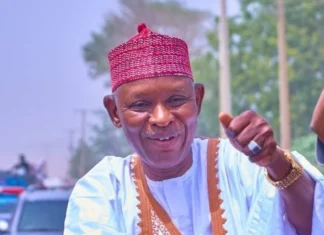- The financial technology industry in Africa is indeed booming – but where is the money?
By Evelyn Dan Epelle
WASHINGTON, D.C – Recent data insights on FinTech solutions in Africa highlight some important trends for innovators in both formal and informal financial markets. As in many continent-wide analyses, Nigeria often serves as a focal point. A recent Stears Data report described Nigeria’s FinTech landscape as “booming,” noting that the country attracted an estimated $600 million in funding over five years. The findings suggest that expanding financial access to the unbanked is both possible and commercially viable.
By emphasizing how traditional banks have failed to facilitate financial inclusion at the lower echelon, opportunities to further productize and innovate for the informal sector have opened up. For example, an in-depth analysis of survey data that criticized financial inclusion in Sub-Saharan Africa (SSA) showed that FinTech solutions specifically designed for Nigeria must target the unique needs of local communities to be deemed impactful.
With nearly half of Nigeria’s banked population still operating via traditional channels, the true nature of needs for the informal sector is easily eclipsed – yet the urge to innovate will not wait. Already, the claim that Nigeria’s financially-included population relies on traditional banks breaks down in the absence of real population data for Africa’s most populous nation. Nigeria’s last official census was conducted in 2006, and updated demographic data would significantly enhance financial inclusion planning.
To get started on financial inclusion, Nigeria will have to determine the true population size, then draw a more objective crosstab on the financially excluded populations that have both the access and motivation to transition from informal savings practices to technology-enabled platforms. But does Nigeria’s financially excluded population have any motivation to abandon informal savings practices for technology-backed formalities?
Picture the everyday market woman, whose household needs are tied to daily sales at Onitsha, Oshodi, or Ariaria market, pivoting from highly practical, day-to-day methods of savings like sticking Naira notes in her brazier or ‘kolo’ while bargaining with customers, to owning a mobile device that helps track meager savings. Understanding such lived experiences is essential for designing user-centered financial technologies that respond to actual behaviors and constraints.
Why Sustaining FinTech Growth Requires Deeper Structural Support
Banking the unbanked in Nigeria will require more than drooling about early progress and profits. A look at the challenges and trends with financial inclusion in a developed economy like the United States shows that progress in financial inclusion often rests on three pillars: robust data systems, sound fiscal policy, and sustained innovation. This can be instructive; the U.S. has the second-highest poverty rate in the developed world, with 78 percent of Americans living paycheck-to-paycheck. The Center for Financial Inclusion (CFI), which seeks to advance inclusive financial systems for low-income people around the world, describes how America is making progress with financial inclusion. It is data first, healthy fiscal policies, and rapid, venture-backed innovation of its FinTech industry.
Innovation is a positive step toward financial literacy and freedom. It has fostered financial inclusion in countries like Kenya, India, and China, but the same can be said of Nigeria only when strategic action to layer progress is taken. In Nigeria, one must look outside how the unbanked can save to answer the most critical question: what will the unbanked save? The path forward involves addressing fundamental questions about income, employment, and financial capacity. Without acknowledging the socio-economic reality of the masses, Nigeria’s booming FinTech industry risks developing products that never get past privileged populations. While the rise of technological innovation in any developing country is laudable and supports financial inclusion, the rising poverty index in Nigeria will easily bottleneck progress.
Reaching the unbanked will require mass empowerment through fiscal policies that catalyze a dire need for long-term savings. After all, the more money that one has, the more long-term that one can think. Informal saving channels exist partly because, although the poor do not save, it creates a sense of security as they model the survival skills of the rich.











